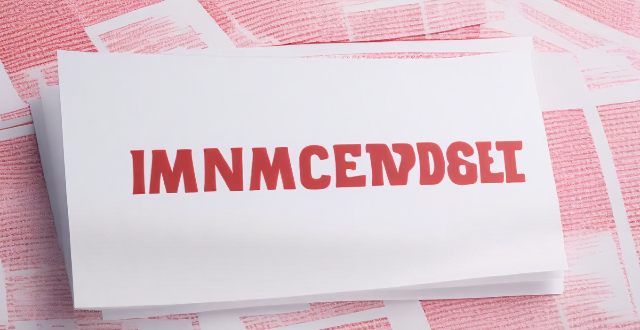The importance of an emergency fund cannot be overstated, serving as a financial buffer during unforeseen events like job loss or medical issues. Key benefits include reduced stress, avoidance of debt, improved resilience, and protection of credit scores. The recommended amount varies but is often three to six months' worth of essential expenses, adjusted based on individual circumstances.

The Importance of an Emergency Fund
An emergency fund is a critical component of financial planning. It serves as a safety net during unexpected events, such as job loss, medical emergencies, or major car repairs. Here are some key benefits of having an emergency fund:
- Reduces Financial Stress: Knowing you have money set aside for emergencies can significantly reduce stress and anxiety during tough times.
- Avoids Debt: With an emergency fund, you're less likely to rely on credit cards or loans to cover unexpected expenses, which can save you from accruing high-interest debt.
- Improves Financial Resilience: Having reserves helps you weather financial storms without drastically altering your lifestyle or long-term plans.
- Protects Your Credit Score: By avoiding the need to borrow money during a crisis, you can maintain a good credit score.
How Much Should Your Emergency Fund Be?
Experts often recommend saving enough to cover three to six months’ worth of essential living expenses. However, the ideal amount can vary based on individual circumstances, such as job stability, health insurance coverage, and personal obligations like dependents or mortgage payments. Here’s how to determine the right amount for your situation:
1. Calculate Monthly Expenses: Start by listing all your essential monthly bills, including housing, utilities, food, transportation, and insurance.
2. Consider Unexpected Costs: Factor in any irregular expenses that might come up, such as annual insurance premiums or car maintenance.
3. Assess Risk Factors: If your job is unstable or you have a variable income, consider saving more than the standard three to six months.
4. Review Health Insurance: If you have a high deductible health plan, you may need to save more to cover potential medical costs.
5. Personal Life Circumstances: If you have dependents or are single, you might want to save closer to six months of expenses to account for additional responsibilities or lack of dual income.
Example Calculation:
Let's say your monthly expenses are $2,000. You should aim to save between $6,000 (3 months) and $12,000 (6 months). If you feel more comfortable or face higher risk factors, aiming for eight months’ worth, or $16,000, could be prudent.
Remember, the goal of an emergency fund is not to cover every possible expense but rather to provide a financial cushion for true emergencies that could otherwise disrupt your financial stability.